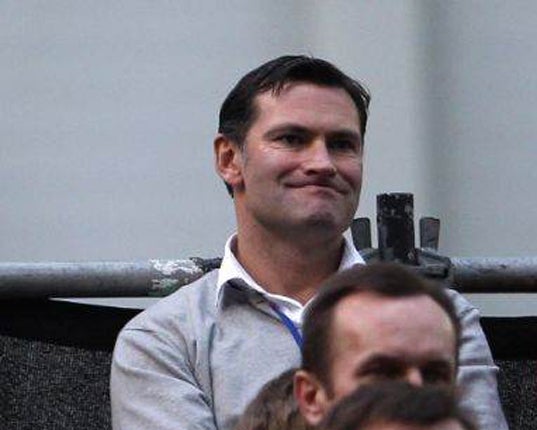Draper pleads for more time to raise British game

Your support helps us to tell the story
From reproductive rights to climate change to Big Tech, The Independent is on the ground when the story is developing. Whether it's investigating the financials of Elon Musk's pro-Trump PAC or producing our latest documentary, 'The A Word', which shines a light on the American women fighting for reproductive rights, we know how important it is to parse out the facts from the messaging.
At such a critical moment in US history, we need reporters on the ground. Your donation allows us to keep sending journalists to speak to both sides of the story.
The Independent is trusted by Americans across the entire political spectrum. And unlike many other quality news outlets, we choose not to lock Americans out of our reporting and analysis with paywalls. We believe quality journalism should be available to everyone, paid for by those who can afford it.
Your support makes all the difference.Roger Draper celebrated his fifth anniversary as chief executive of the Lawn Tennis Association this week but insisted yesterday that he should not be judged for another five years. While Britain's men, with the exception of Andy Murray, are less successful than when he took charge, Draper said it was too early to assess his reforms. "I've always said it takes 10 years to transform a sport," Draper said at the National Tennis Centre at Roehampton.
Although there has been some improvement among the British women, with Elena Baltacha and Anne Keothavong reaching the top 100 and Heather Watson and Laura Robson winning junior Grand Slam titles, the men have struggled. When Draper took office there were three Britons ranked in the world's top 100 (Murray, Tim Henman and Greg Rusedski) and nine in the top 300. Today Murray is the only Briton in the top 200, while James Ward and Dan Cox are the only others in the top 300. Draper, however, said it would take time for the improvements that had been made in areas such as strength and conditioning, nutrition and scheduling to take effect.
The average age of players in the world's top 100 is now 27, while the average age of players reaching the top 100 is 24. A problem for Britain is that not enough players stay in the game beyond their early twenties. Draper said that 10 per cent of French players with a world ranking eventually reach the world's top 100 compared with only 1.6 per cent of Britons. "We need to keep players in the game for longer," he said.
Draper pointed out that commercial progress had seen the LTA's turnover increase by 25 per cent over the last four years. "We run ourselves like a FTSE 250 business, not like a village fete committee," he said.
"We don't come in and think every day: 'How can we bugger up British tennis today?' We actually come in and work very hard to try to improve all of these things. The reason British tennis has lurched from one thing to another is because every five years it gets ripped up and started again. You need continuity."
In the months after Draper took over he recruited a succession of highly-paid overseas coaches and administrators, including Brad Gilbert, Paul Annacone, Peter Lundgren, Carl Maes and Steve Martens. Now that they have all left, did he think that recruitment policy had been a mistake?
"On the one hand you could argue it has been a mistake in terms of instant results," he said. "Where I think we will actually see the benefits of people like Paul Annacone and Steve Martens and Carl Maes is the impact they've had on a lot of the young British coaches."
Pointing out that the LTA is happy to support players who train overseas – Watson is based in Florida and Robson in Paris – Draper said it was wrong to expect the governing body to produce champions. "Freddie Flintoff wasn't produced by the ECB and Wayne Rooney wasn't produced by the FA," he said.
Join our commenting forum
Join thought-provoking conversations, follow other Independent readers and see their replies
Comments